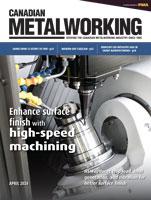Editor
- FMA
- The Fabricator
- FABTECH
- Canadian Metalworking
Reducing worker burnout
It’s not better to burn out than to fade away
- By Joe Thompson
- March 8, 2024
A burnout is a good thing when you’re in the driver’s seat of a 1970 Plymouth Hemi ’Cuda, but it’s not great in your workforce.
It’s no secret: Machine shops are demanding environments that require high levels of skill, precision, and productivity. This comes with pressure.
However, these factors also can contribute to worker burnout, which is a state of physical, mental, and emotional exhaustion caused by chronic stress at work. Burnout negatively affects work quality, worker safety, and profitability. This makes it something you should identify and work to eliminate.
Burnout is often mistaken for normal workplace stress, or even worse, an employee flaw. However, in 2019, burnout was added to the International Classification of Diseases (ICD-11).
According to the World Health Organization (WHO), burnout is a syndrome resulting from chronic workplace stress that has not been successfully managed. It typically manifests in three ways:
- Feeling exhausted.
- Feeling negative about your job.
- Reduced efficacy.
So as a workplace leader, what can you do about it?
Training. Shop workers need to feel confident and competent about the tasks they perform, and training—and the accompanying feedback—helps. Upskilling workers makes them feel valued and appreciated.
Many shops struggle with providing a career path to their workers. Typical shops are not usually like a corporate entity that has clearly defined career paths. Without new challenges and opportunities, careers can stagnate. A skills and role development program can help workers feel stimulated, engaged, and fulfilled.
Talking. We send too many emails. Encourage face-to-face communication, when possible. Workers that are directly connected to and supported by their colleagues and managers are more likely to share ideas, solve problems, and cope with challenges.
Recognition. Reward achievements so that workers are recognized for their hard work and contributions. It boosts morale and enables them to feel good about both their work and their workplace.
Balance. Workers need to have time and energy for their personal lives and interests. A proper work-life balance reduces stress and helps workers recharge their batteries.
Ignore the signs of burnout in your shop and your staff may head out the door quickly ... and smoke their tires on the way out.
subscribe now


Keep up to date with the latest news, events, and technology for all things metal from our pair of monthly magazines written specifically for Canadian manufacturers!
Start Your Free SubscriptionAbout the Author

Joe Thompson
416-1154 Warden Avenue
Toronto, M1R 0A1 Canada
905-315-8226
Joe Thompson has been covering the Canadian manufacturing sector for more than two decades. He is responsible for the day-to-day editorial direction of the magazine, providing a uniquely Canadian look at the world of metal manufacturing.
An award-winning writer and graduate of the Sheridan College journalism program, he has published articles worldwide in a variety of industries, including manufacturing, pharmaceutical, medical, infrastructure, and entertainment.
- Trending Articles
Automating additive manufacturing

Sustainability Analyzer Tool helps users measure and reduce carbon footprint

CTMA launches another round of Career-Ready program

Sandvik Coromant hosts workforce development event empowering young women in manufacturing

GF Machining Solutions names managing director and head of market region North and Central Americas

- Industry Events
MME Winnipeg
- April 30, 2024
- Winnipeg, ON Canada
CTMA Economic Uncertainty: Helping You Navigate Windsor Seminar
- April 30, 2024
- Windsor, ON Canada
CTMA Economic Uncertainty: Helping You Navigate Kitchener Seminar
- May 2, 2024
- Kitchener, ON Canada
Automate 2024
- May 6 - 9, 2024
- Chicago, IL
ANCA Open House
- May 7 - 8, 2024
- Wixom, MI
















